QTRL Cohort 2025-26
Introducing the 2024-25 cohort for the Queer and Trans Research Lab at the Bonham Centre for Sexual Diversity Studies!
Faculty Lead and Director of the Mark S. Bonham Centre for Sexual Diversity Studies
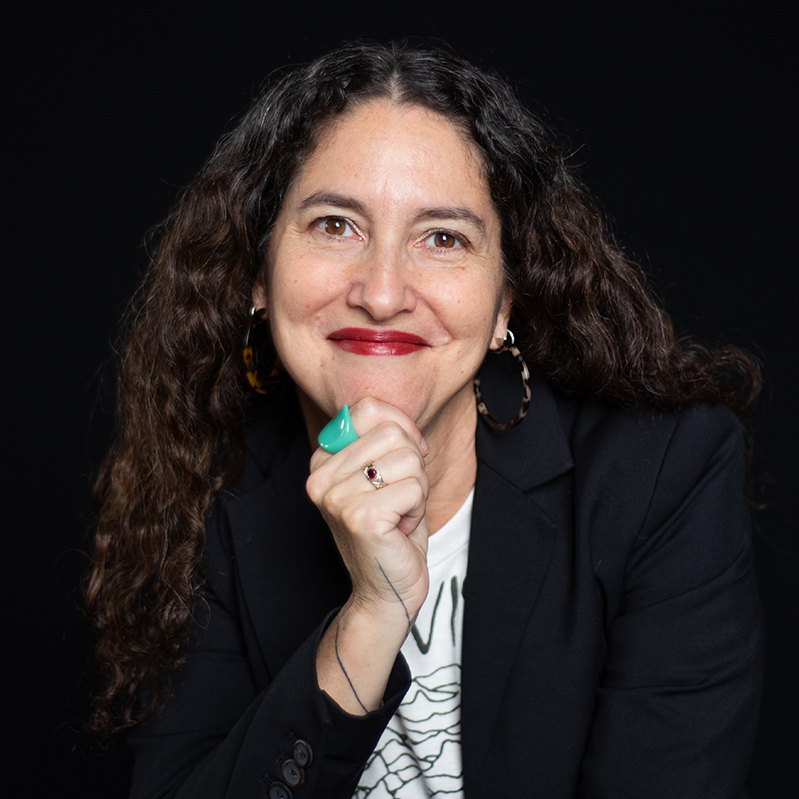
Dana Seitler is Professor of English and Director of the Bonham Centre for Sexual Diversity Studies at the University of Toronto. She is the author of Atavistic Tendencies: The Culture of Science in American Modernity (2008) and Reading Sideways: The Queer Politics of Art in Modern American Fiction (2019), which was a 2020 finalist for the Lambda Literary Award for Best Book in LGBTQ Studies. She has published in several academic journals including American Quarterly, GLQ, Criticism, Cultural Critique, American Literature, Genre, and A/SAP. Her current project, Narcopoetics: Biopolitics, Withdrawal, Ecstasy focuses on the politics and aesthetics of the opioid crisis at the intersections of race and sexuality in the U.S.
Research Associate: QTRL Program Coordinator
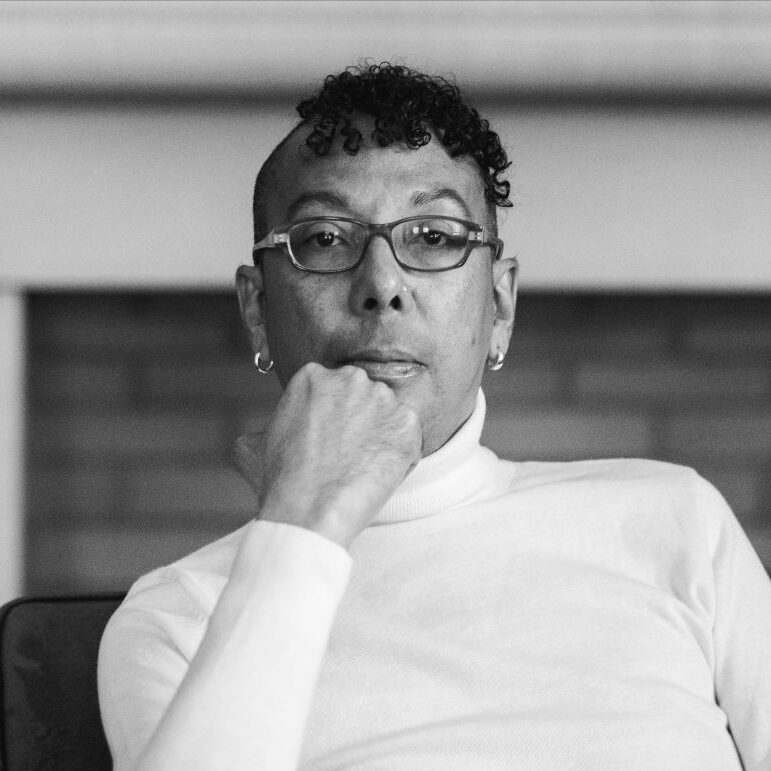
Christopher (C.G.) Smith received their Ph.D. from the Department of Social Justice Education – Ontario Institute for Studies in Education (OISE) / University of Toronto in 2020. Their research interests reside in the productive interstices of Black Diaspora Cultural Studies, Black expressive cultures and practices, Black and Queer geographies, Queer of Color Critique, and Black Feminist theories of decolonization. Their first manuscript tentatively titled “Itinerant Hospitalities: Black. Queer. World-making”, explores the aesthetic and performative strategies cultivated by contemporary Black LGBT+ artists and activists that enable collective responses to the persistence of HIV in Black communities globally. Their publications include “Where U From, Who U Wit!?”: Black Pride Festivals as Itinerant Hospitality” in the special issue “Queer Canada” in the Journal of Canadian Studies (2020). Their book chapter, co-authored with Dr. Heather Sykes, “Trans*, Intersex and Cisgender issues in Physical Education and Sport” (2016) offers a decolonial analysis of Trans* inclusive policy initiatives addressing Trans* experience in K-12 educational settings. It will be reprinted in the 2nd edition of Queerly Canadian: An Introductory Reader in Sexuality Studies in 2022 by Canadian Scholar’s Press. Their most recent article “Matters of Formation and the Queer Afterlives of Stuart Hall” (2024) can be found in SX Salon, a Small Axe project.
Martha LA McCain Postdoctoral Fellow
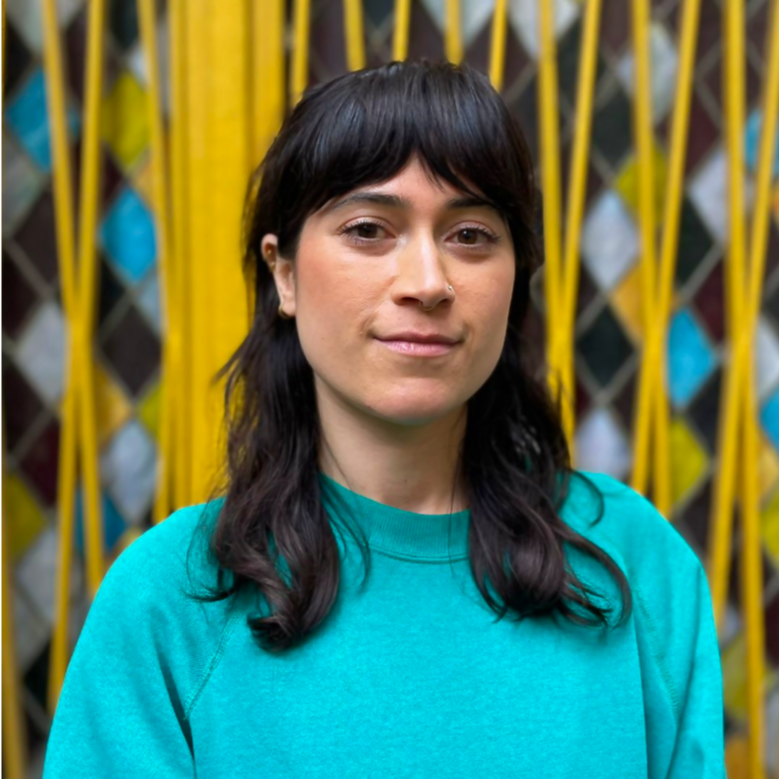
Ruth Ramsden-Karelse received her DPhil in English from the University of Oxford. She is currently completing her first monograph, Gays and Girls Make Worlds, which shows how gender and sexually diverse communities of colour living under apartheid in South Africa undertook the politically and culturally significant work of creating more just and expansive realities, with a particular focus on the GALA Queer Archive’s Kewpie Photographic Collection and associated depictions of Cape Town’s lost District Six. Building on this research, Ruth’s next major project will offer the first critical genealogy of the Southern African word moffie: customarily a pejorative descriptor for individuals read as effeminate men that has been recently reclaimed as a defiant term of self-identification in a manner comparable to queer in the global North. Prior to joining the Bonham Centre as a Postdoctoral Fellow, Ruth has been a Fellow at the Berlin Institute for Cultural Inquiry, a Research Associate at the University of Manchester’s Centre on Dynamics of Ethnicity, and Merton College’s inaugural Stuart Hall Doctoral Scholar. She remains an Associate of the Stuart Hall Foundation and is an organizing member of the queer South African collective Salon Kewpie. Her writing has appeared in publications including GLQ: A Journal of Lesbian and Gay Studies and Gender, Place & Culture: A Journal of Feminist Geography and has been awarded a prize by the Queer African Studies Association.
Artist-In-Residence
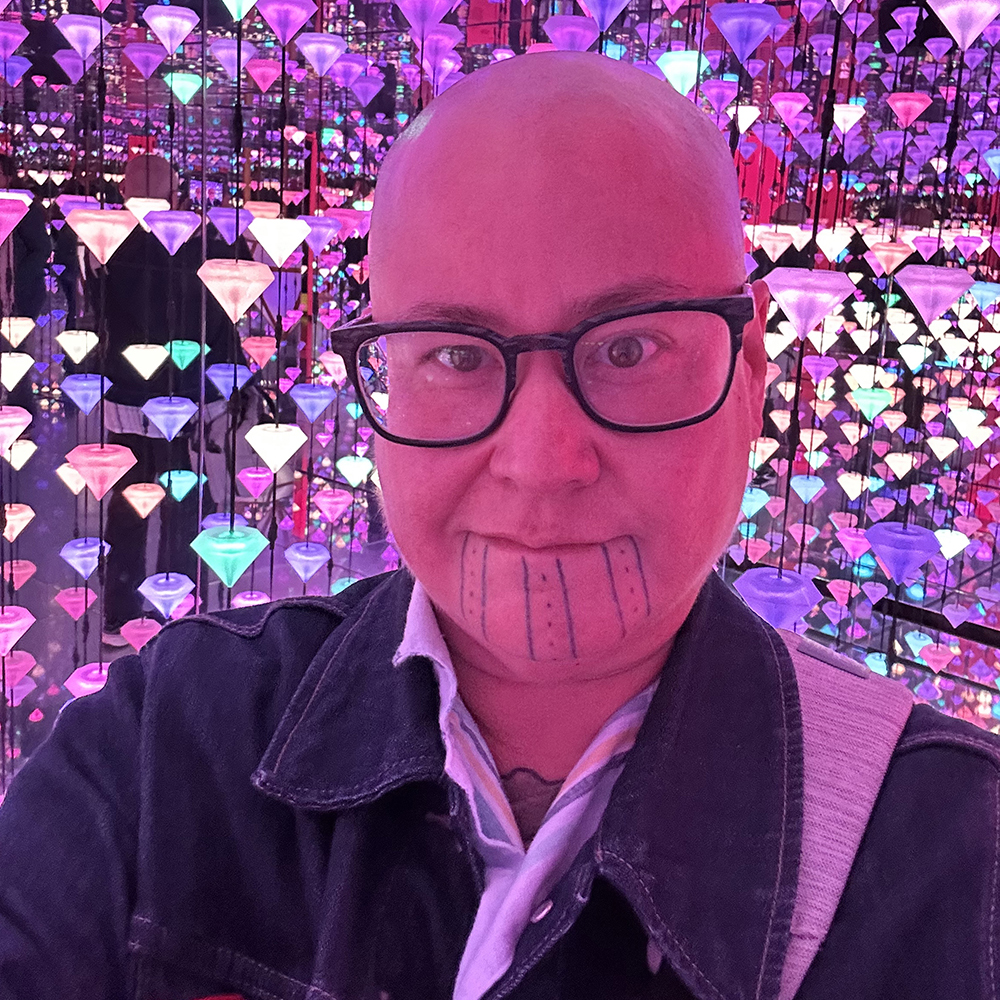
Theo Cuthand (he/him) was born in Regina, Saskatchewan, Canada, in 1978, and grew up in Saskatoon. Since 1995, he has been making short experimental narrative videos and films about sexuality, madness, queer identity and love, and indigeneity, which have screened in festivals internationally, including the Tribeca Film Festival in New York City, Mix Brasil Festival of Sexual Diversity in Sao Paolo, ImagineNATIVE in Toronto, Ann Arbor Film Festival, Images in Toronto, Berlinale in Berlin, New York Film Festival, Outfest, and European Media Art Festival in Osnabrück. His work has also exhibited at art galleries including the Remai in Saskatoon, The National Gallery in Ottawa, the Whitney Museum of American Art in New York, MoMA in New York, and The Walker Art Center in Minneapolis. He completed his Bachelor of Fine Arts majoring in Film and Video at Emily Carr University of Art and Design in 2005, and his Masters of Arts in Media Production at Toronto Metropolitan University in 2015. He has made commissioned work for Urban Shaman and Videopool in Winnipeg, Cinema Politica in Montreal, VIMAF in Vancouver, and Bawaadan Collective in Canada. In 2020, he completed working on a 2D video game called A Bipolar Journey based on his experience learning and dealing with his bipolar disorder. In 2023, he finished his second video game Carmilla the Lonely, a lesbian vampire game about ethics. He was the Indigenous Artist in Residence at University of Western Ontario for 2024-2025, where he began work on a video game called Repatriate Me. He has also written three feature screenplays and has performed at Live at The End of The Century in Vancouver, Queer City Cinema’s Performatorium in Regina, and 7a*11d in Toronto. He is a Whitney Biennial 2019 artist. His current project is a documentary trilogy called Unsettled Climate, about transgender people who have been displaced or had to move because of climate change related disasters. He is a trans man who uses he/him pronouns. Cuthand is of Plains Cree and Scots descent, a member of Little Pine First Nation, and currently resides in Toronto, Canada.
Martha LA McCain Faculty Fellow
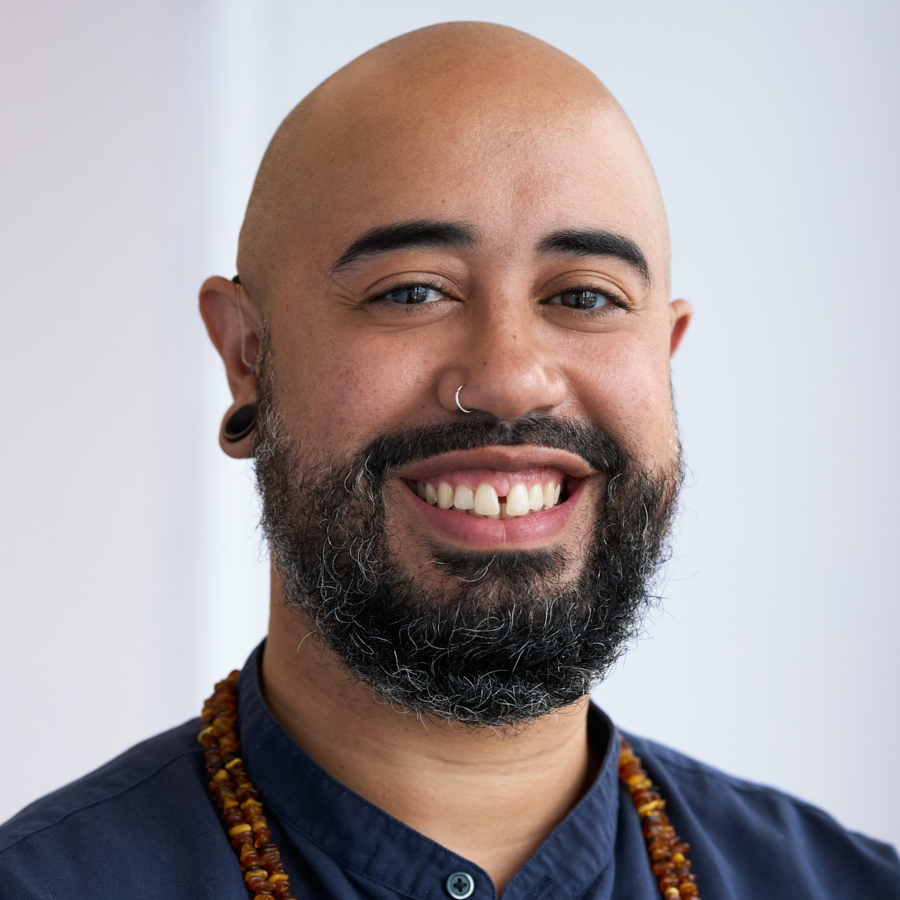
Qui Alexander (they/them) is an Assistant Professor of Gender, Sexuality and Trans Studies in Curriculum and Pedagogy in the Department of Curriculum, Teaching and Learning at OISE. Their research focuses on Black trans studies, abolition & transformative justice, and education outside of formal school contexts. Grounded in their experiences as a community organizer, Alexander views their scholarship as a place to articulate the cultural work they do in relation to their communities. During the faculty fellowship, Alexander will conduct research for their project entitled Black Trans Educators Coming into Critical Consciousness. This study aims to understand 1) how Black trans educators come into critical consciousness about their ways of knowing and 2) how these ways of knowing impact their work for educational justice. These questions will be explored through curating and facilitating two multi-day, residential, knowledge co-creation spaces for Black trans educators in both the US and Canada. Moving beyond Black trans people as objects of study in educational research, this research works to understand Black trans life as a site of knowledge production.
Community Organizer In-Residence
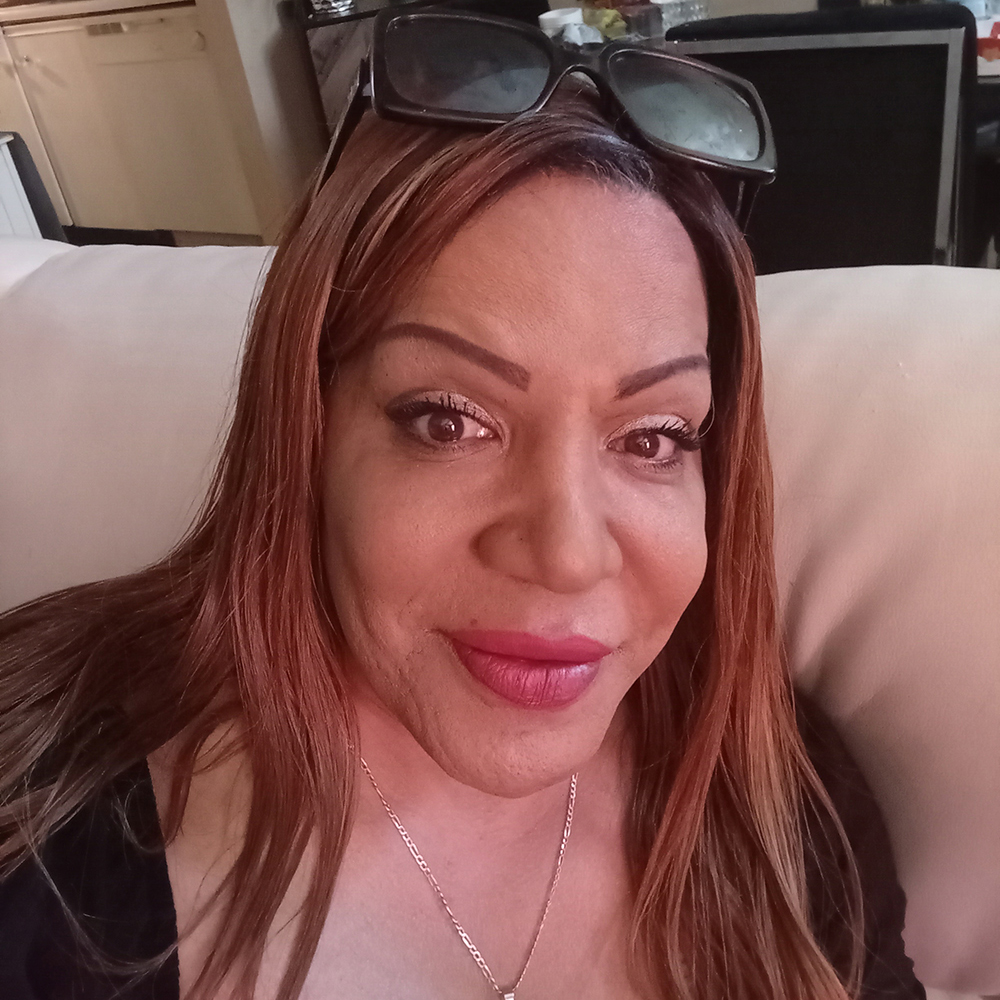
Monica Forrester (she/they) is a 2Spirit Trans Women of color, activist, community leader, sex worker, and parent. For 27 years she has been working in community services to bring awareness to the lives of racialized and marginalized Trans and 2Spirit folks that may be sex workers, under housed, unemployed, use substances, and are experiencing systemic and societal violence. She works on creating inclusive spaces for Trans/2Spirit people in places of community and employment. Her work is grounded in the belief that supervising and leading outreach teams through a harm reduction approach has better outcomes for community members that may be engaging in sex work, using substances and/or are under housed. Her current goal is to create opportunities for Trans/2Spirit people to use their life experiences and training in harm reduction to create employment opportunities to transition individuals into the workforce. Creating pathways to employment allows Trans/2Spirit people with no work experience or education to build skills to work in community services to support others in the community that may share the same life experiences. As part of the residency, Forrester will create training modules that support marginalized and racialized trans people through harm reduction and peer outreach employment methods and approaches as they apply to work.
Graduate Research Assistant
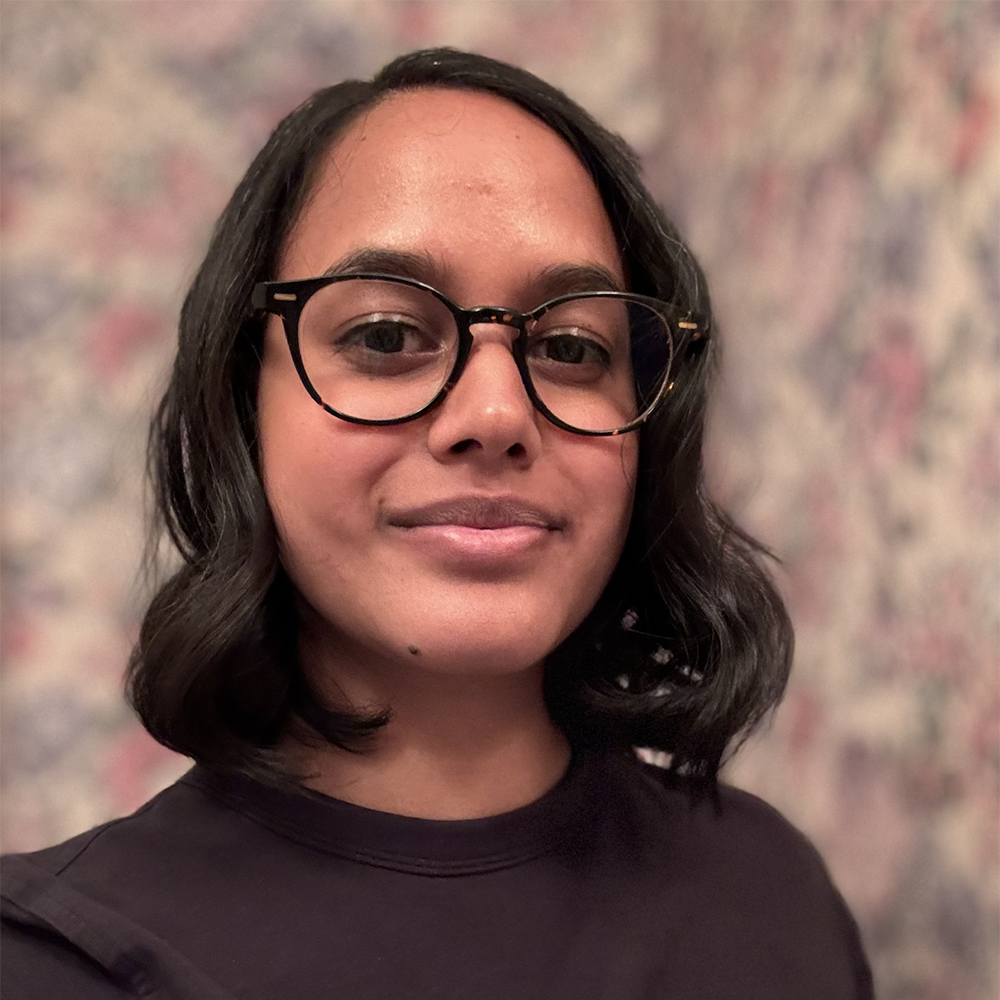
Stephanie Sawah, a PhD. student in Women and Gender Studies with a Collaborative Specialization in Sexual Diversity Studies, investigates queer diasporic Caribbean people and their contemporary performance aesthetics in queer nightlife spaces like JERK, a self-described queer Caribbean rave in Toronto. She examines how performance aesthetics at JERK — defined as how attendees dance, who they dance with, and the music to which they dance — allow these communities to eke out social relations invested in queer pleasure, looking at how those social relations queer ideas of an “authentic” diasporic Caribbean identity. In undertaking this research, she considers how JERK’s description as a “rave” and not a “carnival fête” problematize claims to an “authentic” Caribbean diaspora inasmuch as queerness also recontextualizes those claims. The tentative title of the project is The Raves, Riddims, and Aesthetics of Queer Diasporic Caribbean Nightlife in Toronto.
Graduate Dissertation Completion Award Recipients
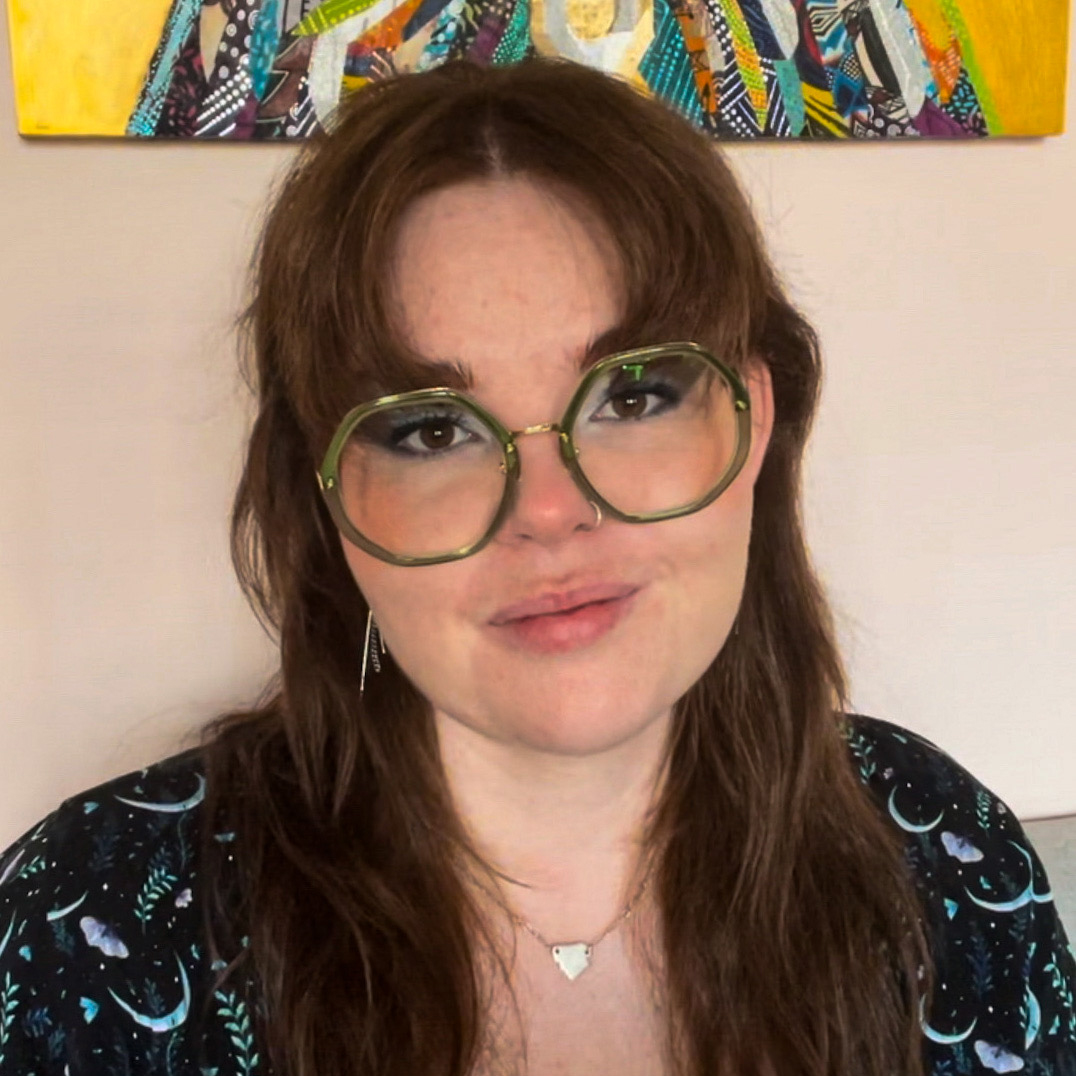
Skylar Cameron is a Doctor of Musical Arts candidate in Voice Performance with a Collaborative Specialization in Sexual Diversity Studies at the University of Toronto and a member of the Centre for Global Disability Studies. Their dissertation, Unruly Vocality: A Phenomenological and Arts-Based Exploration of Disabled Professional Classical Singers Experiences, examines how disabled singers navigate and resist systemic ableism and chrononormativity within the classical music industry. Drawing from critical disability studies, queer theory, and phenomenology, Skylar explores how fluctuating access, and nonlinear artistic practices challenge dominant norms in classical singing. Their work draws on crip and queer aesthetics—embracing fragmentation, fluidity, and embodied knowledge—to reimagine artistic excellence. Through arts-based methods, including autoethnography, interviews, and a final sound collage, the project expands what academic scholarship can sound like, centering disabled modes of expression as both research and artistic intervention.
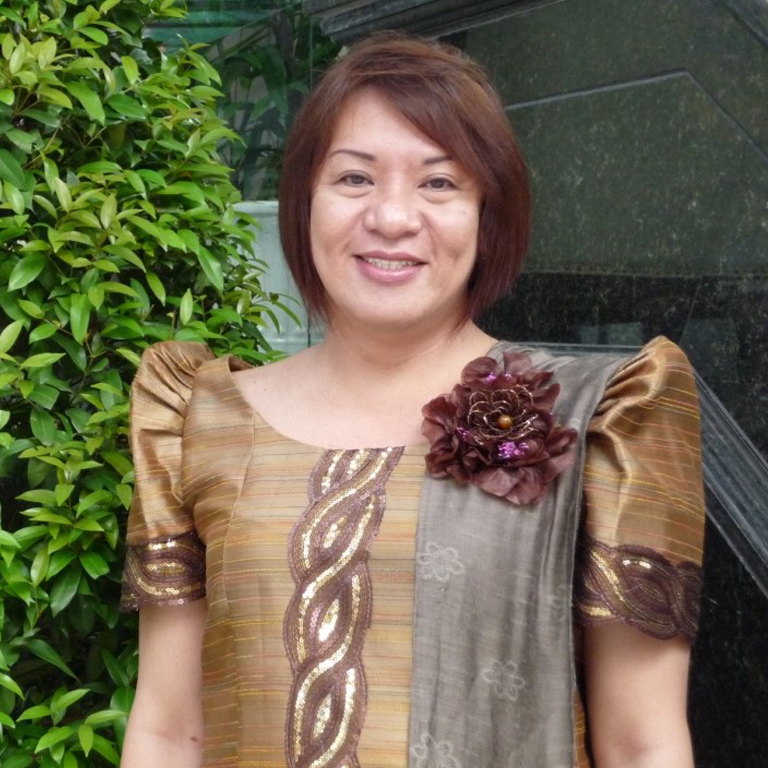
Ferdinand M. Lopez (she, her, siya) is a PhD candidate at the Women and Gender Studies Institute with a collaborative specialization in Sexual Diversity Studies. Her dissertation “Lamyerda as Tropical Flirtation: Navigating Tondo and Its Queer Archipelago,” offers a nuanced understanding of how sexually marginalized communities in the Philippine Global South negotiate and resist oppressive heteronormative cultures. In the 70s, the bakla (Filipinx queer) recuperated lamyerda (fuck, shit, hell) from its colonial mooring and deployed it to denote cruising and the multiple ways in which queer walking, meandering, and having fun defies normative institutions of power. Rather than being considered apolitical, lamyerda, with its multiple significations, serves as a repository for acts of refusal, subversion, and resistance in Manila’s biggest urban slum, Tondo, during the dictatorial regime of Blood, Beauty, and Brutality.
Undergraduate Research Assistants
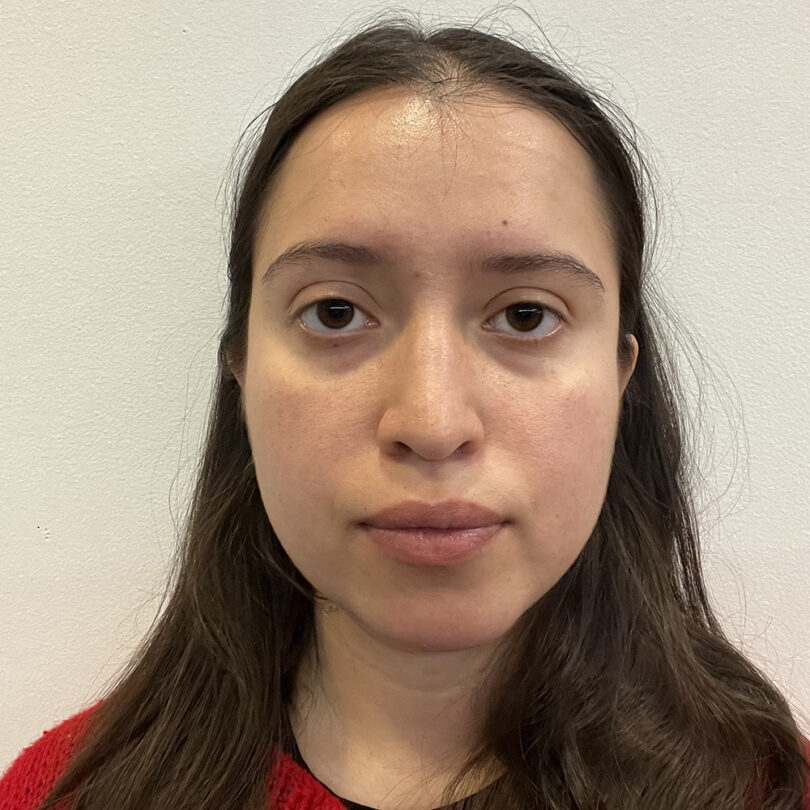
Luna Galvez Pozo
Sexual Diversity Studies, Spanish, Latin American Studies
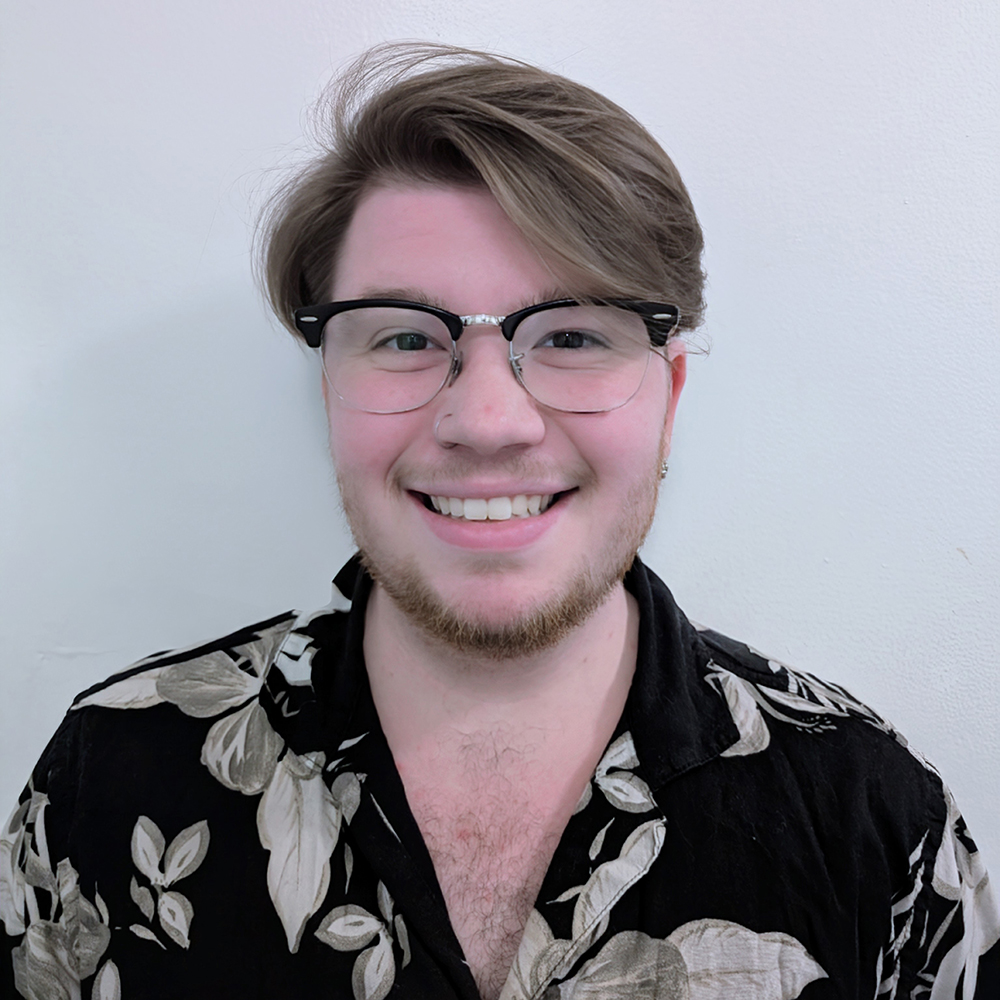
Jesse Grant
Specialist in Sexual Diversity Studies, English
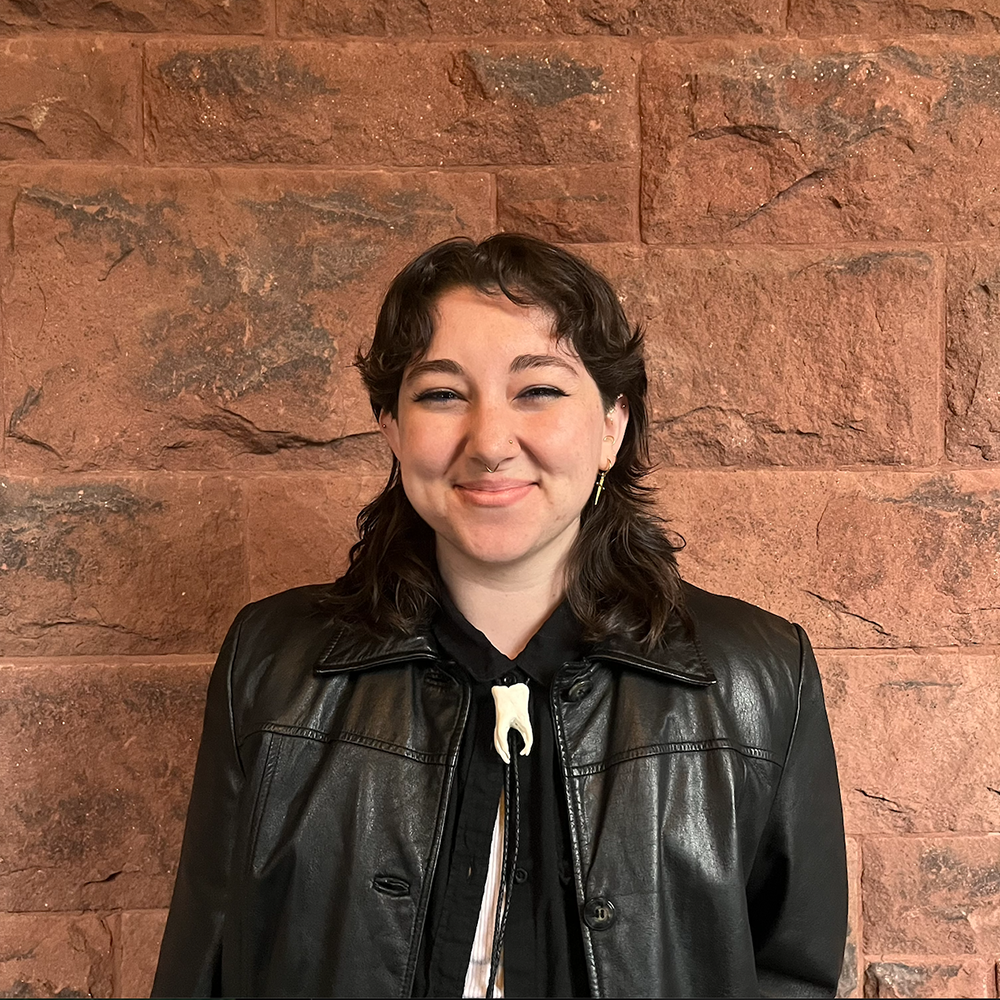
Franca Ciannavei
Sexual Diversity Studies, Political Science
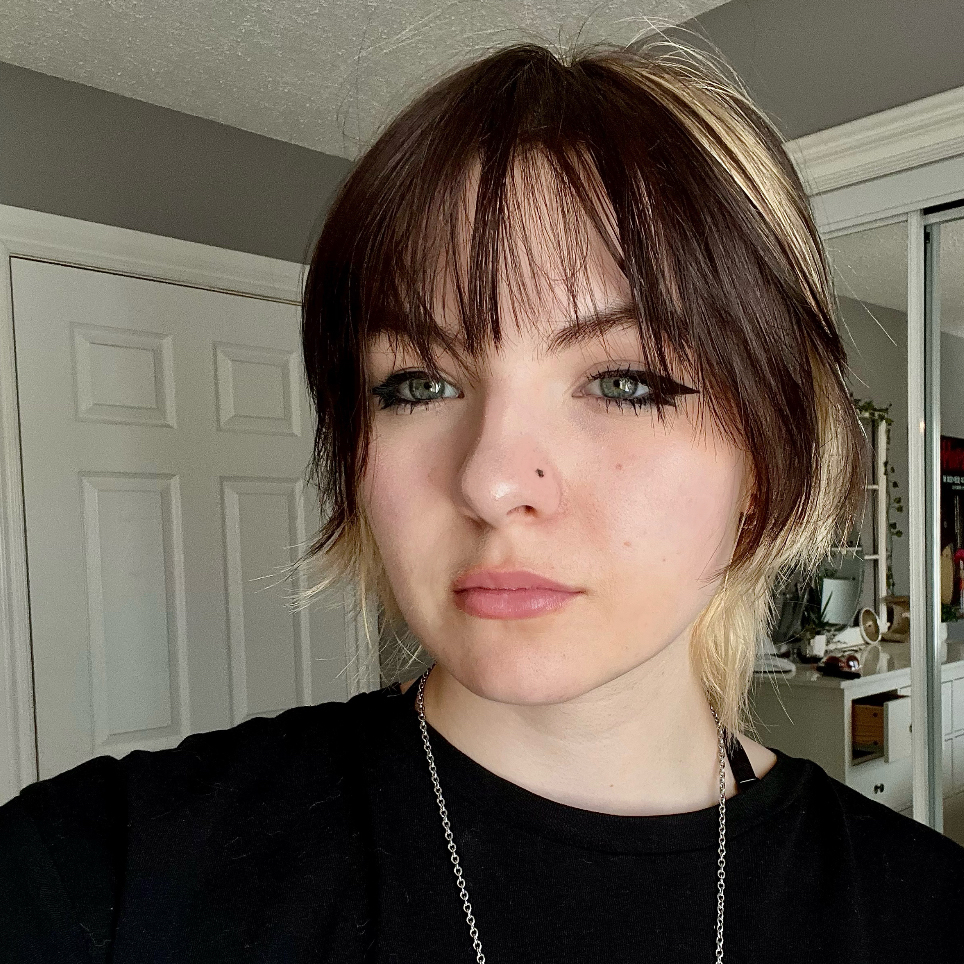
Thea Weaver
Sexual Diversity Studies, Book and Media Studies
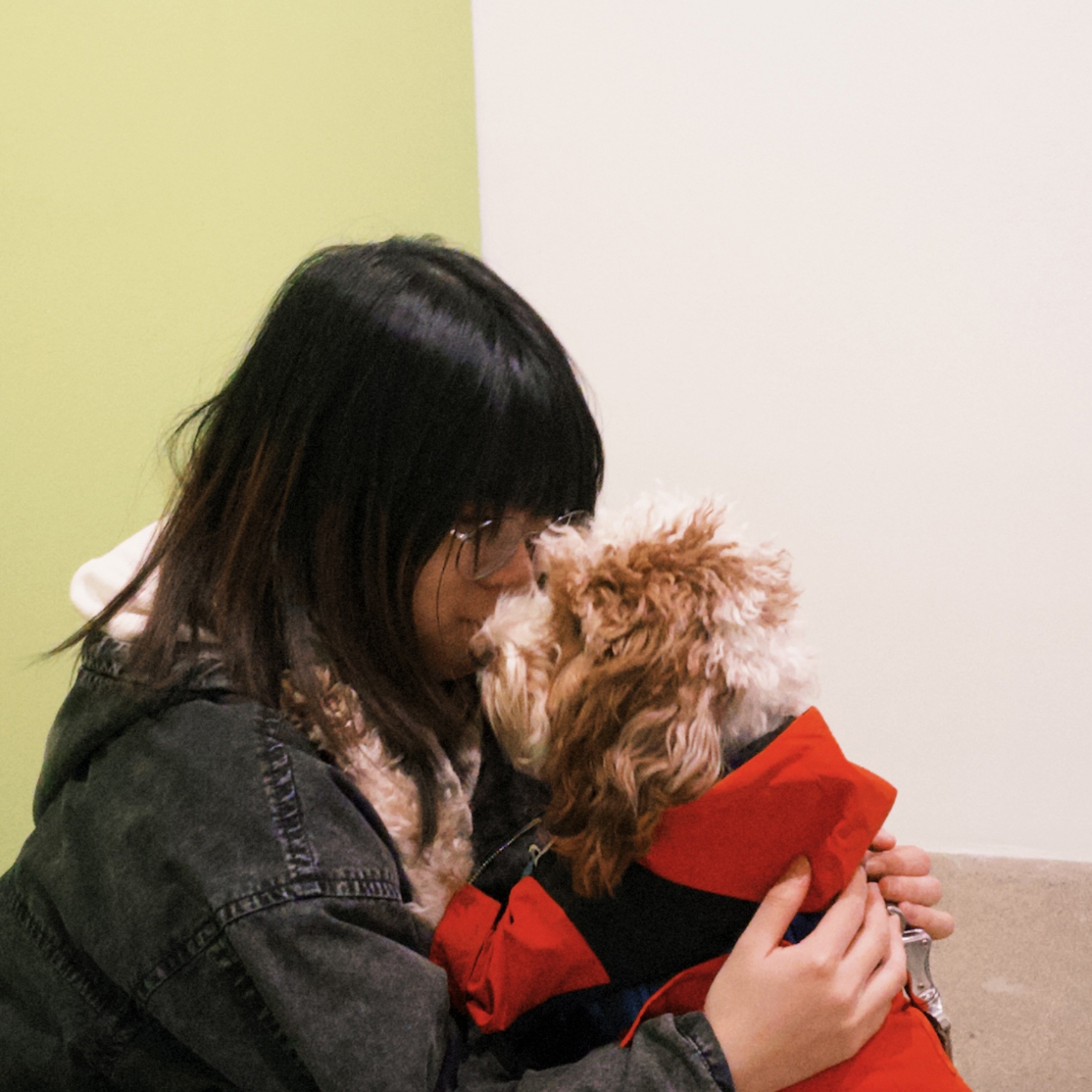
Lorraine Pan
Sexual Diversity Studies, Women and Gender Studies, and Critical Equity & Solidarity Studies
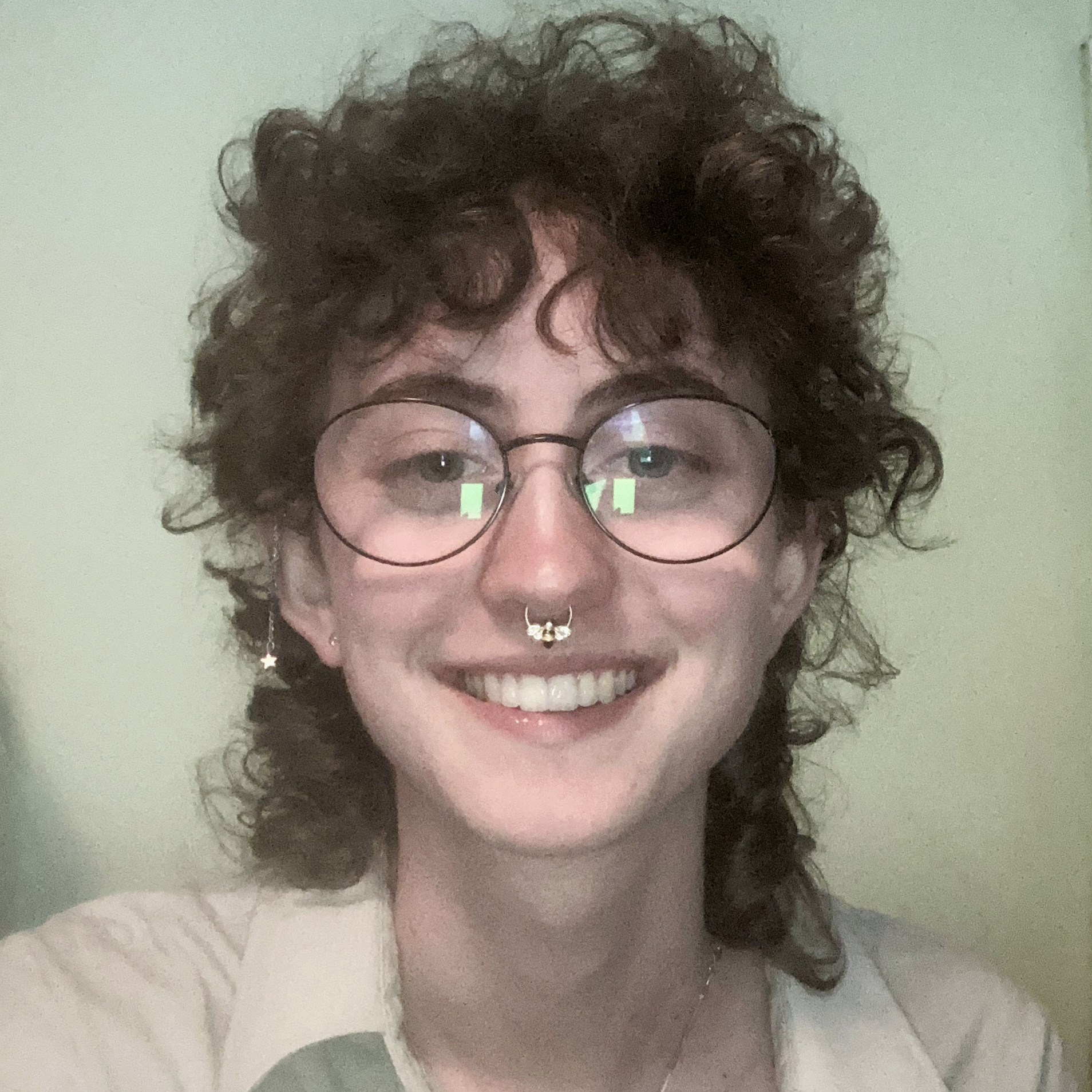
Benji Savage
Sexual Diversity Studies, English, Creative Writing
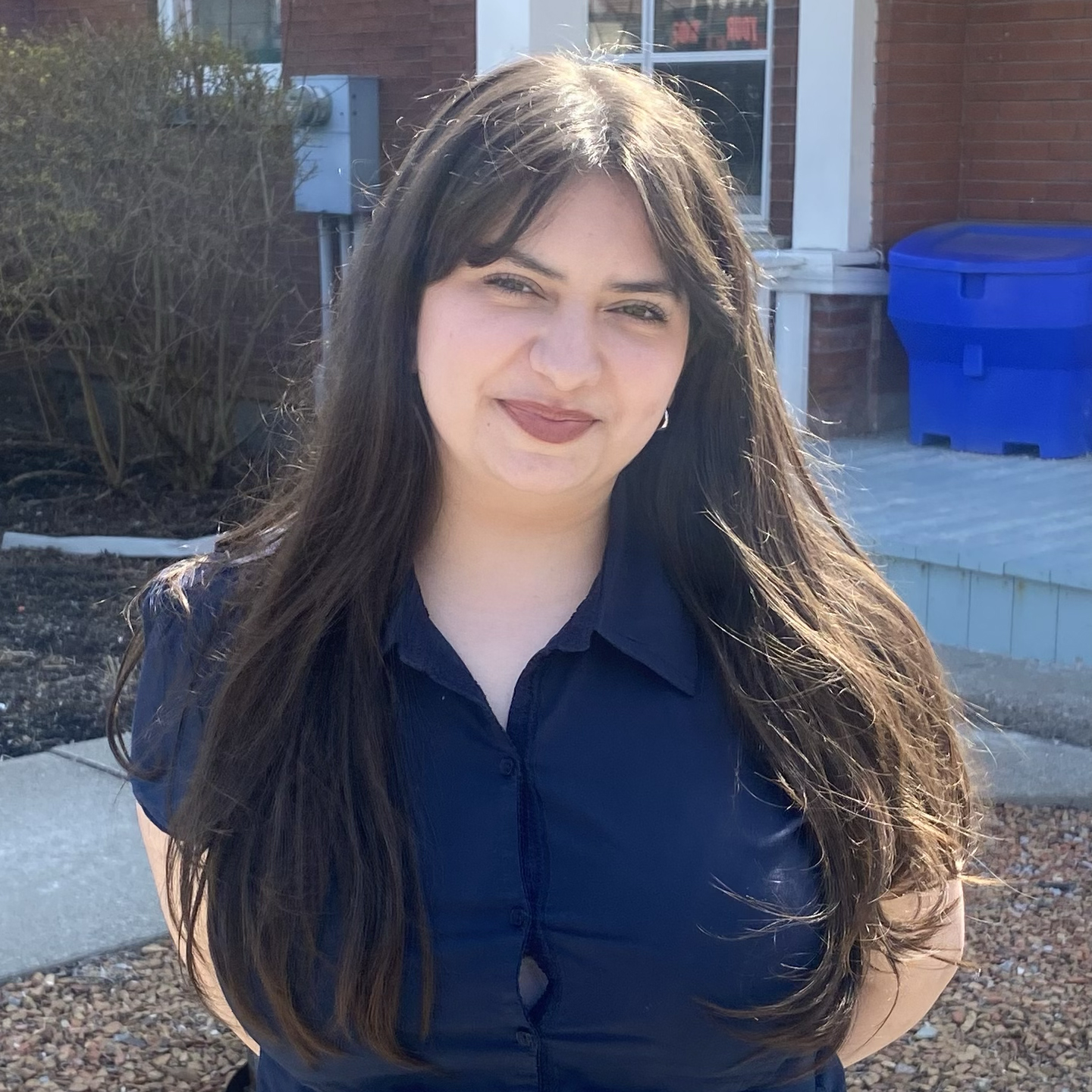
Alia Eiras
Sexual Diversity Studies, Criminology and Sociolegal Studies, Art History
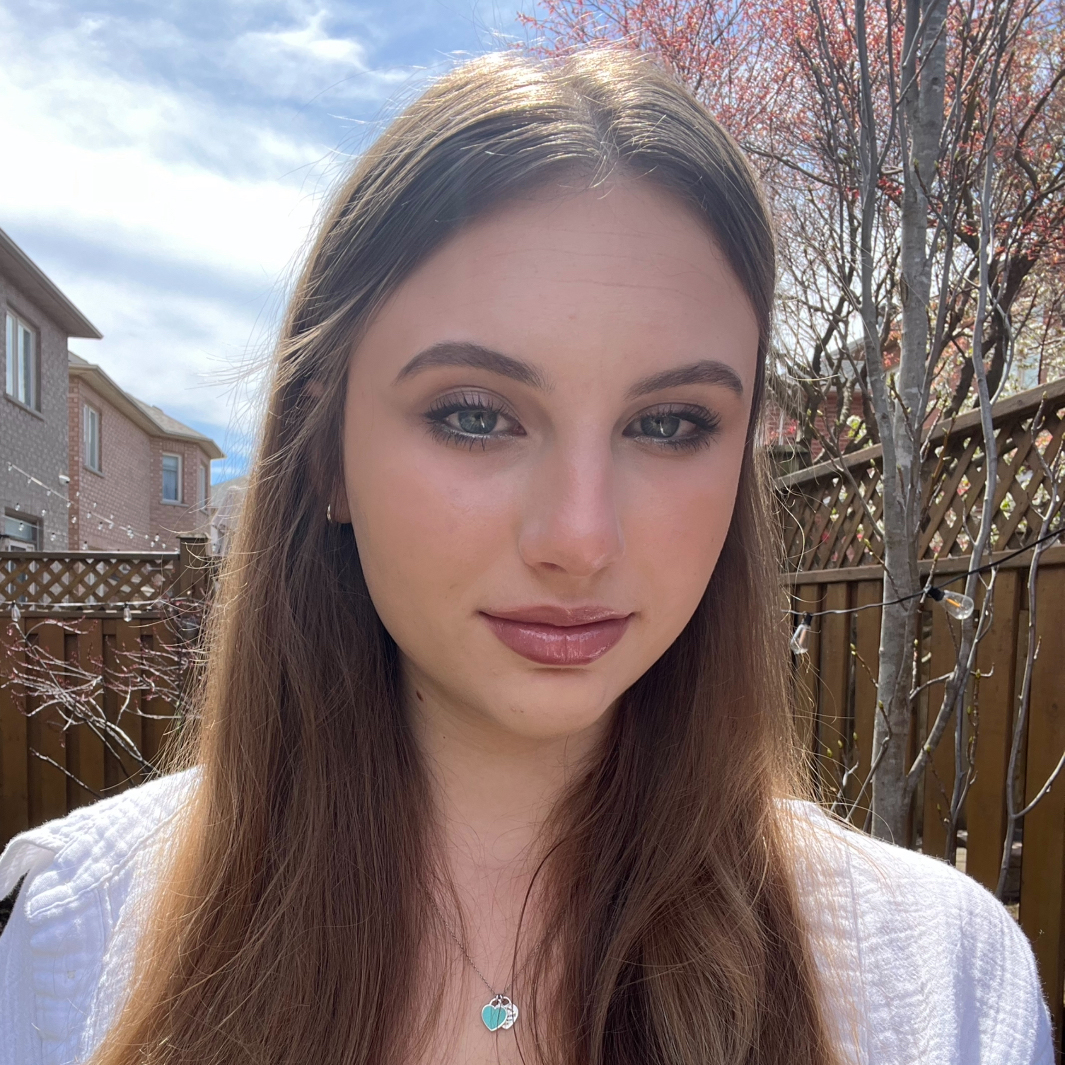
Julia
Sexual Diversity Studies, Philosophy
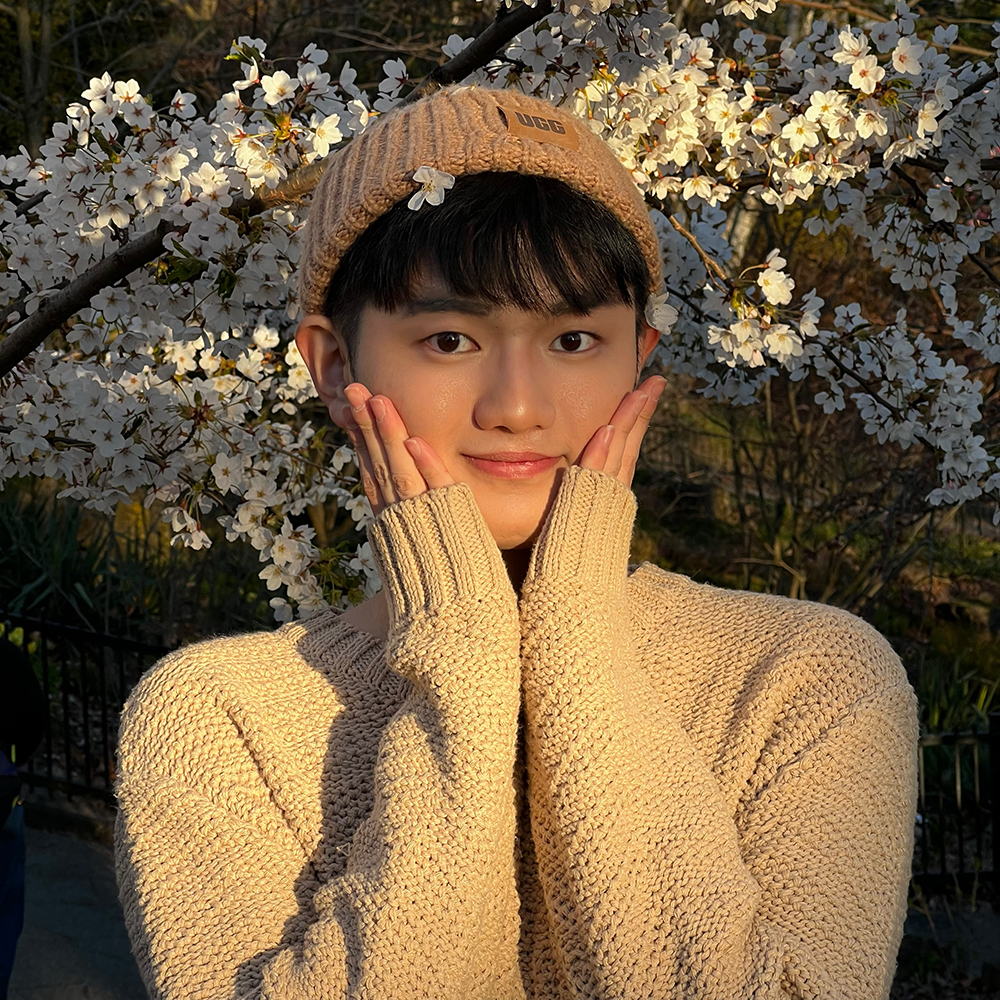
Zicong (Joseph) Zhang
Sexual Diversity Studies, Political Science
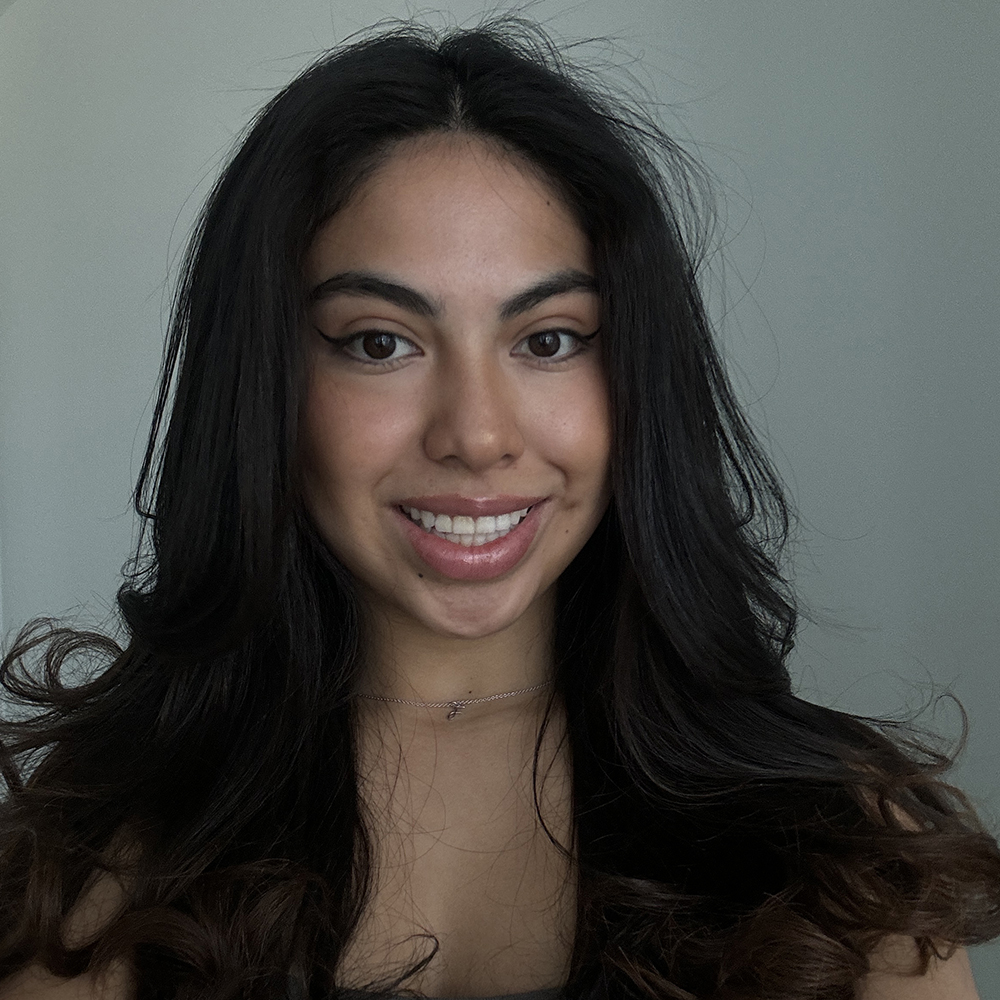
Fernanda Alderete Hernandez
Sexual Diversity Studies, Women and Gender Studies (WGSI)
Emerging Project Fellowships
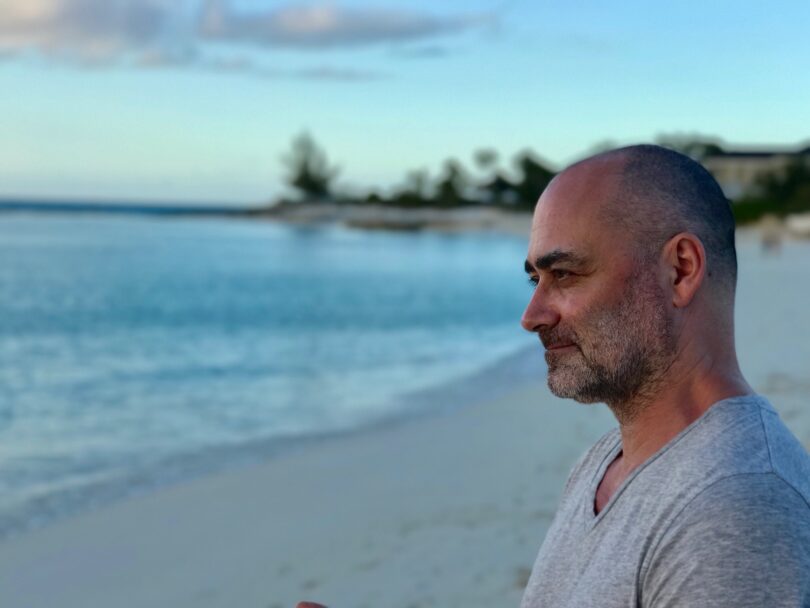
Sex and the Aesthetics of the Finite: A Queer Research Atelier
Primary Investigators
John Paul Ricco, Professor of Comparative Literature and Art History and Visual Culture, University of Toronto
Colin Buist, PhD candidate, Department of Art History, University of Toronto
Ran Deng, PhD candidate, Comparative Literature, University of Toronto
Sex and the Aesthetics of the Finite is a cross-disciplinary collaborative research initiative that seeks to build a reciprocal network between faculty and doctoral students in queer studies at the University of Toronto and McGill University. Inspired by the atelier model in art or architecture schools, where students learn through short-term residencies in studios and workshops at a peer institution, our emerging project will bring together 14 graduate students working at the intersection of sex, aesthetics, and finitude. The student participants work under the supervision of Professors John Paul Ricco (Toronto) or Bobby Benedicto (Montreal), and thus the project represents a unique opportunity to form a new research cluster in queer and trans studies within the Canadian academic context.
The overall goal of this initiative is to facilitate interdisciplinary dialogue and build intellectual community, by creating a space for collaborative exchange between junior scholars in Canada who study sex and sexuality, especially through the lenses of critical theory, aesthetics and ethics, and philosophies of finitude—a constellation that remains rare or marginal in queer and trans studies.
By bringing together scholars, students, and community members, working in art history, comparative literature, dance studies, film and sound studies, trans-pacific studies, black studies, trans studies, genderqueer theory and AIDS and bio-political critique, the project will cultivate a space for critical dialogue and collective learning. Through the critical examination of the ways sex, aesthetics, and finitude bear upon each other, participants will be able to advance their respective projects on the lived realities and ethical-political imaginaries of queer, non-binary, genderqueer, and trans people today.

Queer Scarborough “On Paper”: Toward a Queer of Colour Archival Practice
Primary Investigators
Linda Li, HBA Candidate (Sexual Diversity Studies; Ethics & Society, and Law), University of Toronto
Keith Cheng, PhD Student, Urban & Regional Planning, University of Michigan
Dirk J. Rodricks, PhD, Assistant Professor, Ontario Institute for Studies in Education (OISE), University of Toronto
David Fernández, Head, Department of Rare Books and Special Collections, Thomas Fisher Rare Book Library, University of Toronto
Rainée Nelson, Peer Researcher (Community Partner)
Sky Ffrench, Peer Researcher (Community Partner)
Jega Delisca, Peer Researcher (Community Partner)
Andrea Charise, PhD, Associate Professor, Dept. Health and Society, University of Toronto Scarborough
Scarborough is an eastern district of Toronto with a rich, distinct history and culture shaped by its large racialized and immigrant populations. While narratives around queerness in Toronto are often situated within the downtown core, Scarborough has long been a space where queer people – and, particularly, queer people of colour – have existed and resisted. It was, as Richard Fung states in Marvellous Grounds (2018), where some of the first conversations around queerness within a Tamil context were held and it is where the queer narratives of literary works like David Chariandy’s Brother (2017) and Catherine Hernandez’ Scarborough (2017) are set. Despite this recent attention placed on highlighting the unique experiences of queers in Scarborough, there remains a lack of formally documented history of queerness in the east end. Our collective of university researchers, community organizers, lived experience (peer) collaborators, and arts workers, aims to document these missing histories, by exploring how digital spaces and artistic practice can expand notions of community and build new ones.
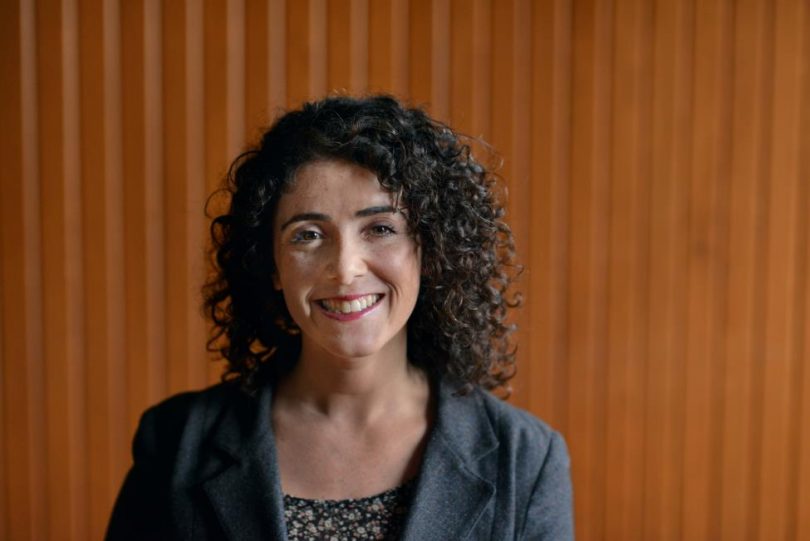
2SLGBTQ+ FAMILY BUILDING CANADA
Primary Investigators
Dr. Laine Halpern Zisman, Postdoctoral Fellow, School of Public Health and Social Policy, University of Victoria
Gabrielle Griffith, Program Coordinator, Seed/Sprout with Birth Mark; Support and the Regional Coordinator for RESPCTT, Birth Place Lab
Jen Goldberg, RM; MPH; PhD Candidate in Social and Behavioural Health Sciences, Dalla Lana School of Public Health, University of Toronto
Michelle WY Tam, PhD Candidate, Division of Social and Behavioural Health Science, Dalla Lana School of Public Health, University of Toronto
Dr. Lori Ross, Associate Professor in the Social and Behavioural Health Sciences Division, Dalla Lana School of Public Health, University of Toronto
Dr. Daniel Grace, Associate Professor, Dalla Lana School of Public Health, University of Toronto
Anna Penner, Program Manager, 2SLGBTQ+ Health Hub
Elgin Pecjak Ripun, Ph.D. Candidate, Feminist and Gender Studies, University of Ottawa
Kia B., RN
Alison Carson
Carly Pettinger
Ana Luisa Santo
Amelia Wynter, Social Work Psychotherapist, MSW, RSW
2SLGBTQ+ Family Building Canada (FBC) is a national resource for reproductive justice, community fertility support, and healthcare provider training. Our research, online platform, and activities respond to diverse community needs for education, services, and advocacy in reproductive journeys.With inadequate information available for 2SLGBTQ+ people trying to navigate family building in Canada and limited 2SLGBTQ+ trainings available in standard healthcare curriculum, many individuals face barriers in creating or expanding their families in Canada. Our online platform helps individuals and families navigate their next steps, understand their options, and address barriers. Fromthe political to the familial, FBC provides supports and strategies for all families. Bridging theoretical analysis and meaningful community engagement, our project activities aim to improve both community access to services and training for care providers. Created in partnership with Birth Mark’s Seed andSprout program, FBC is working to assess community needs and develop an expansive network of programming that supports 2SLGBTQ+ families(familybuildingcanada.com). Developed and facilitated by community members, researchers, and care providers, our community-based research and activities respond to gaps in knowledge and services

Spazi sicuri / Safe Spaces – Unveiling the Queer Italian-Canadian Experience
Primary Investigators
Dr. Paolo Frascà (he/they; lui), Assistant Professor, Teaching Stream (continuing track), Department of Italian Studies, Affiliate Faculty at Mark S. Bonham Centre for Sexual Diversity Studies, Affiliate Faculty at Global Migrations Lab (Munk School of Global Affairs and Public Policy), University of Toronto
Dr. Licia Canton (she/her), Co-Director of Queer Italian-Canadian Artists: Ethnic Belonging and Cultural Production, Frank Iacobucci Centre for Italian-Canadian Studies (University of Toronto); based in Montréal
Liana Cusmano (they/them), award-winning author, spoken-word artist, and filmmaker; based in Montréal
Vincenzo Pietropaolo (he/him), award-winning photographer and author; based in Toronto.
The subscription to heteronormative and traditional values has played an important role in the preservation of Italian cultures in Canada and in the integration of Italian communities into the Canadian mainstream, within the colonial operations of white settler-dominated “multiculturalism”. These phenomena have caused the marginalization of members of Italian-Canadian communities who belong to gender and sexual minorities; these dynamics have also led to the erasure of histories of sexual and gender diversity in Italian-Canadian communities. Our research-creation, community-oriented literary-photographic exhibit documents queer Italian-Canadians and their “safe spaces” through a combination of photographs by Vincenzo Pietropaolo and poetry/poetic prose Liana Cusmano, both award-winning creators. Thanks to the Emerging Projects Grant, the exhibit will be expanded to include ten additional urban and rural locations and it will travel to three locations: Vancouver, Winnipeg, and the University of Toronto. This project is connected to and inspired by community and academic efforts related to queer Italian-Canadian life and cultural production: these include the two anthologies of queer Italian-Canadian writing (2021; 2024; ed. Licia Canton), the documentary “Creative Spaces: Queer and Italian-Canadian” (ed. Licia Canton) and the SSHRC/Jackman-funded research project “Queer Italian-Canadian Artists: A Study on Ethnic Belonging and Cultural Production” (co-directed by Paolo Frascà and Licia Canton; website: www.qic-artists.com). This is a community building project, pan-Canadian, bridging multiple generations, locations, genders, and sexualities, connecting the academic and artistic communities as well as visual and literary fields. The publication of a volume based on the expanded exhibit is planned for 2026.

